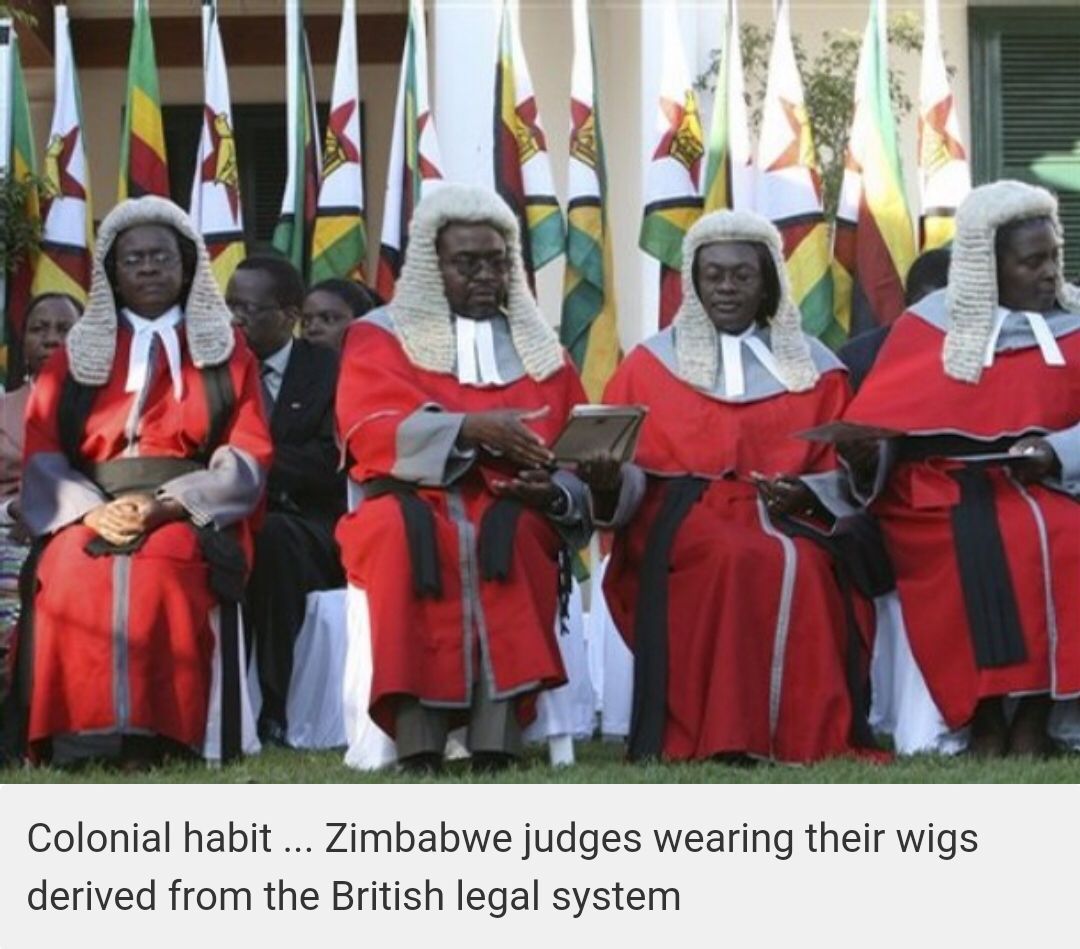Zimbabwe’s judiciary solicits public opinion on wearing of wigs

BULAWAYO – Zimbabweans have until November 3 to submit their views on one of colonialism’s most enduring relics – the powdered horsehair wigs worn by the country’s superior court judges.
The Judicial Service Commission (JSC), the judges’ secretariat, has invited public debate on the removal or retention of wigs as part of the official judicial attire.
Chief Justice Luke Malaba revealed that the matter came up for discussion among judges at the first term symposium held in April in Masvingo.
And now, as head of JSC, he has constituted the “Judicial Wigs Committee” to lead discussions and solicit the public’s views as well as those of judges and lawyers.
“Judges are debating, but the committee now wants to hear views from the general public before making a decision,” the JSC said.
In 2019, the JSC reportedly placed an order of £120,000 for the wigs costing roughly £2,000 each.
The order from Harare went to Stanley Ley in Fleet Street, which however said the shipment was “for a few less” than had been reported in Zimbabwe’s media.
The order drew accusations of extravagance and insensitivity in a country embroiled in an economic crisis.
The wigs have long split opinion among judges, lawyers and the public – with strongly expressed arguments either side.
“Lawyers love their gowns and jabots. Judges love their gowns and wigs. And mayors, to quote Dobie Gray ‘love the freedom of the chains.’ Zimbabwe is nation that loves the distinction that the uniforms give,” opined Zimbabwean international lawyer and author, Petina Gappah.
Fadzayi Mahere, an advocate and spokesperson for the main Citizens Coalition for Change party, would be sad to see the wigs go.
“Wigs make it more difficult for judges to be identified by criminal defendants and other litigants outside court,” she argues.
“They are part of many centuries-old traditions invoked to maintain the authority of the law. Judicial dress is meant to carry a sense of court solemnity or formality.”
She rejects the notion that getting rid of them will give the country a sense of liberation from colonial etiquette.
“Our entire legal system is colonial. Our common law is Roman-Dutch as influenced by English law. We are a constitutional democracy.
“The colour of the wigs is more to do with the fact that when one grows old, their hair turns white. White hair comes with age regardless of race. Old age is associated with wisdom. This is rationale,” she explained.
Arnold Tsunga, a lawyer and human rights advocate, says the cost of the wigs is unjustifiable.
“The conditions in Zimbabwe’s courts are dire and yet they can find money for wings costing thousands of pounds,” he said.
Public Notice
You have an opinion? The JSC wants to hear from you by November 3, 2022. You can download the questionnaire from the JSC website: jsc.org.zw and submit it electronically using e-mails: emawondo@jsc.org.zw or iphileomon@jsc.org.zw
Kukurigo Updates©️
To subscribe click and send “join” https://wa.me/263733043888 or message +263733043888




